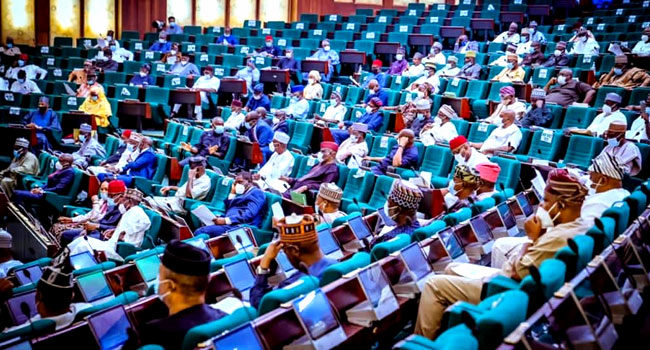The Chairman of the House Committee on Science and Technology, Beni Lar, has said that the closure of the land borders has caused a growth in Nigeria’s economy.
Lar, who is a representative of Langtang North and South federal constituencies, Plateau State, said this on Wednesday in a debate opposing the move to reopen the land borders.
She said, “I support the Deputy Speaker’s position. Border closure is the best thing for Nigeria. The local economy is growing, if we open the borders it will affect local turnovers. For now, it should leave it closed.”
The Deputy Speaker, Idris Wase, argued that the closure of the land borders had effectively contained the state of insecurity and the movement of illegal arms into the country.
Border Reopening
Leading the motion to reopen the country’s land borders were House members Kolawole Lawal, Babatunde
Humpe and 8 others submitted that the closure had not changed anything.
Lawal, representing Egbado South/Ipokia constituency, stated that the closure of the borders affected revenue generation.
Questioning the effectiveness of the borders’ closure, representative Sada Soli, representing Jibia / Kaita Federal Constituency said, “One of the reasons for closing the borders is arms smuggling, but has anything changed? The closure has encouraged extortion, corruption, extra-judicial killings. Anyone in doubt should visit there undercover to prove this.”
READ ALSO: Lawmakers To Probe PPPRA For Unremitted N1.62bn Revenue
Supporting Soli’s position, Isiaka Ibrahim asserted that the government’s strategy regarding the closure of the land borders was “not working”.
He said, “We have tested the closure, the government should know that it is not working, they need to change strategy.”
Background
In August 2019, the Federal Government announced the closure of Nigeria’s land borders to contain the smuggling of goods into the country, with a focus on rice.
The closure has raised questions from various quarters, with many questioning the effectiveness of the move, especially as Nigeria signed the African Continental Free Trade Area (AfCFTA) to allow for stronger intracontinental trade.
Although the borders were partially reopened in 2020, the government has remained unwavering in its decision, despite meetings with governments of neighbouring African countries who highlighted the importance of trading with Nigeria along its borders.












